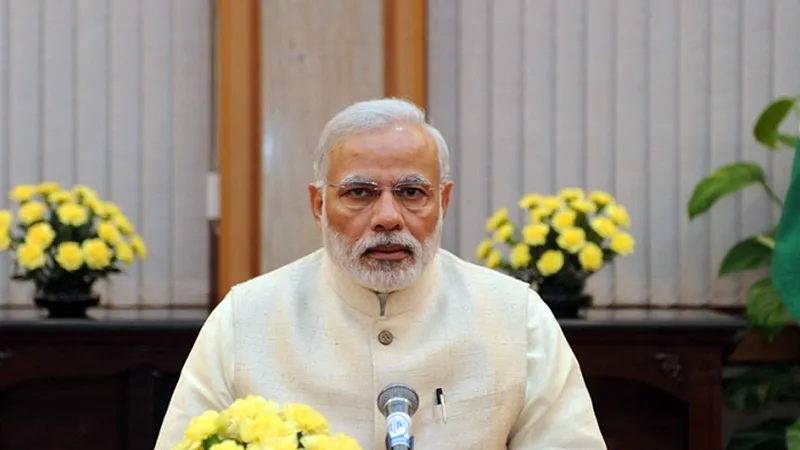On September 18, an Indian Army infantry base in Uri was attacked and
18 Indian soldiers were killed. For the second time in a year, after the Pathankot attack in January, a symbol of India’s military establishment was attacked, and once again, it was attributed to
Pakistan-based terrorists. These attacks enraged the Indian public, and calls for an appropriate response had been getting louder by the day. Ten days later, India claimed to have conducted
‘surgical strikes’ along the Line of Control to eliminate imminent terrorist infiltration and terror strikes in Jammu and Kashmir. While analysts had tabled a wide range of responses, from
pursuing military action to
abrogating the Indus Waters Treaty, India’s swift ‘surgical strikes’ with an element of surprise were intended as a reminder that India will not hesitate to take action against terrorists based in Pakistan and their supporters if they indulge in nefarious actions on Indian soil. However, India’s Director General of Military Operations, Lieutenant General Ranbir Singh, has categorically
conveyed that India does not wish to conduct any further operations, and seeks Pakistan’s support in maintaining peace and tranquility.
Understandably, India could not have let repeated attacks on its soil go unchecked. However, going forward, New Delhi will need to conduct a realistic assessment of its long-term Pakistan policy, which needs to be comprehensive and multi-pronged, and which pushes Islamabad to take action to stop its
support of Laskhar–e-Taiba (LeT) and Jaish-e-Mohammad (JeM).
The Uri attack once again highlights India’s dilemma as it seeks effective ways to deal with Pakistan, which has
supported, trained, and financed anti-India terrorist groups. At a time when India is emerging as a leading power, New Delhi’s long-drawn approach must be one which is calibrated, mature, and reasoned, and has the backing of the international community. New Delhi is acutely aware of the constraints of its full-scale military options. In this regard, India’s former Chief of Naval Staff, Admiral Arun Prakash,
provided a powerful reality check arguing that Indian policymakers need to be cognizant that demanding a “jaw for a tooth” strategy will not be easy because Pakistan’s armed forces are "no pushovers," and maintain a huge advantage of steady military supplies from China. Therefore, given the limitations of military actions, India will continue to grapple with the conundrum of effectively countering Pakistan’s pursuit of low intensity conflict while not escalating nuclear tensions in the region. Thus, it may bode well if New Delhi manages to advance a two-pronged strategy: engage Pakistan’s military in dialogue while still reviewing options to diplomatically corner Pakistan.
Unfortunately, engaging the civilian leadership in Islamabad has not yielded a positive outcome. Indian Prime Minister Narendra Modi has already tried to build a rapport with the political leadership by
inviting Pakistani Prime Minister Nawaz Sharif to his inauguration ceremony in May 2014. PM Modi also paid an
unplanned visit to Sharif’s home in Lahore in December 2015, trying to generate goodwill and build confidence between the two countries. This engagement of the civilian government was aimed at bolstering Pakistan’s political leadership and in turn reducing the salience of the Pakistan Army. However, this process of engagement has not paved the way for resolution of bilateral differences. Instead, it appears that Pakistan’s powerful army and intelligence services have
continued to provide support to home-grown terrorist outfits. While some analysts have
criticised opening direct negotiations with Pakistan’s military, one cannot discount that India’s strategy of only focusing on the civil leadership has failed. Thus, New Delhi should consider engaging the military while still reviewing its other diplomatic options such as possibly revoking Pakistan’s most favoured nation status.
Cooperation with the United States on counterterrorism is another key measure that should be considered. Thus far, the Obama administration has
assured its support to India on the issue of terrorism with US National Security Adviser Susan Rice speaking to her Indian counterpart Ajit Doval after the Uri attack. Furthermore, a recent US Senate Committee on Foreign Relations
hearing on Pakistan with Senator Bob Corker expressing frustration over Pakistan’s refusal to take decisive action against the Haqqani network, and a recently proposed bill — the
‘Pakistan State Sponsor of Terrorism Designation’ bill (HR 6069) — to designate Pakistan as a state sponsor of terrorism reflect the mood in Washington. This could be used as an opportunity by Indian policymakers to expand India’s already growing counterterrorism cooperation with the United States, to elicit favorable outcomes in addressing terrorism issues in the subcontinent.
Additionally, New Delhi should protest and make the international community take note of China’s consistent efforts to
block India’s bid at the United Nations to ban JeM chief Masood Azhar. This kind of politics played by China only undermines Beijing’s credibility in tackling the issue of terrorism, and reflects poorly on a rising power willing to undertake global responsibilities. All future actions undertaken by India will need to be in accordance with India’s status as a responsible power working in tandem with the United States and other Western countries to eradicate terrorism. The issue of terrorism is a burning one across the globe and Pakistan itself is a victim. The Uri attack gives India an opportunity to take action against terrorism while building an international consensus to get support for stymieing this pressing challenge. The attack in Uri is just as condemnable as the one in Pathankot, Gurdaspur, Mumbai, and sustained bloodletting of Indian soldiers by terrorists bred in Pakistan. New Delhi’s surgical strikes were aimed at protecting its citizens, and putting effective strategies of counterterrorism in place to pressurise Pakistan to behave rationally and reasonably.
This commentary originally appeared in South Asian Voices.
The views expressed above belong to the author(s). ORF research and analyses now available on Telegram! Click here to access our curated content — blogs, longforms and interviews.




 PREV
PREV


